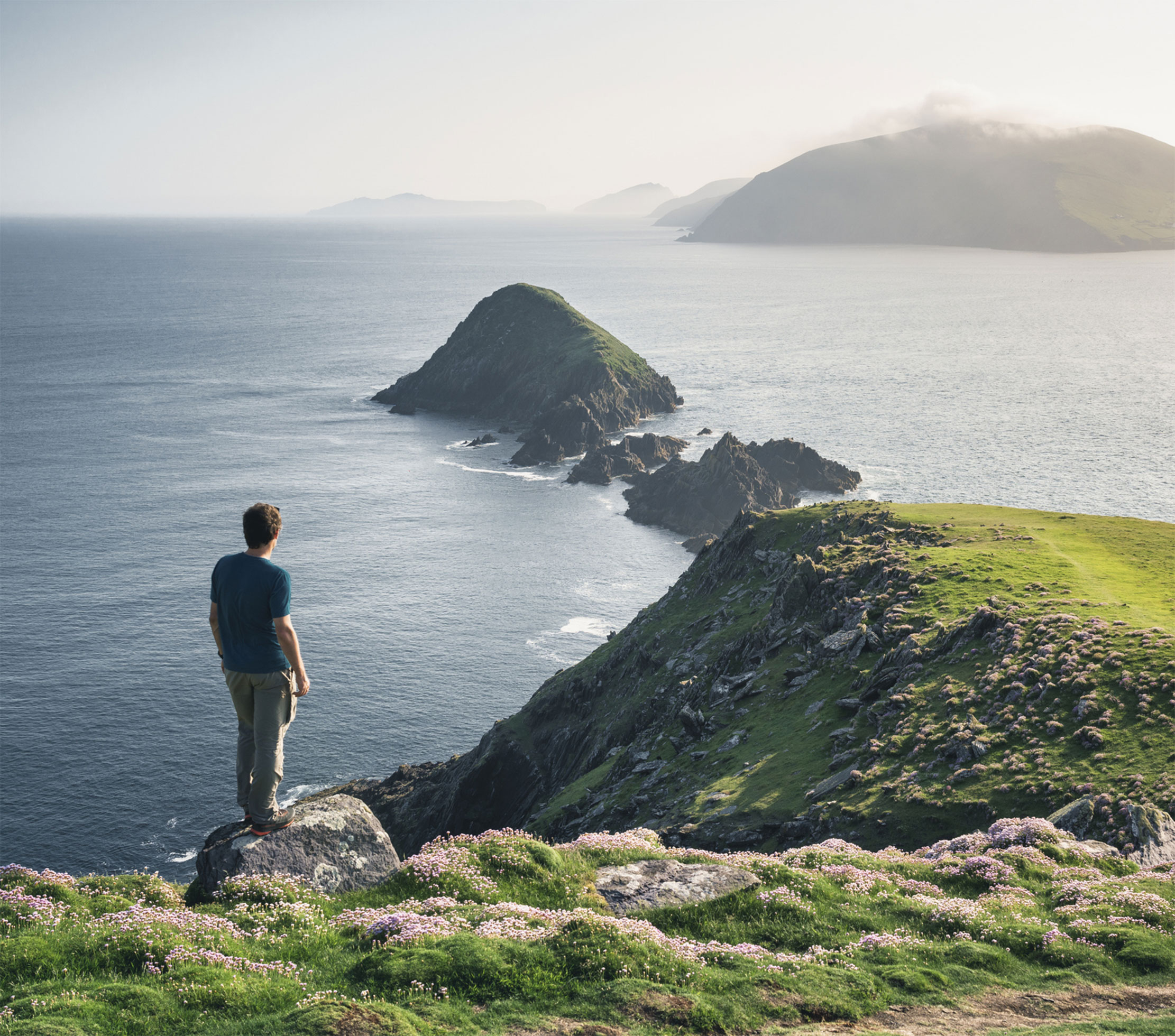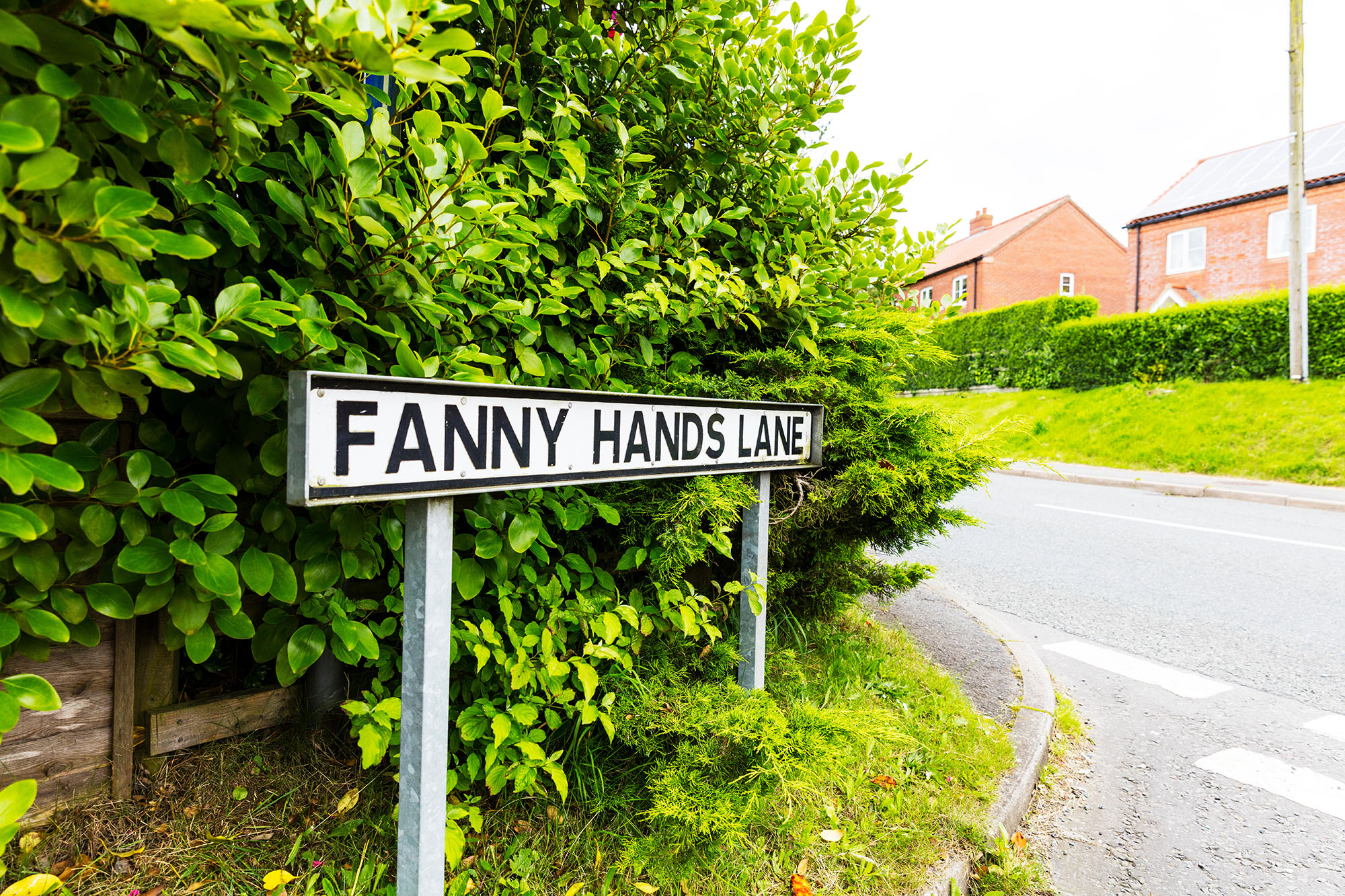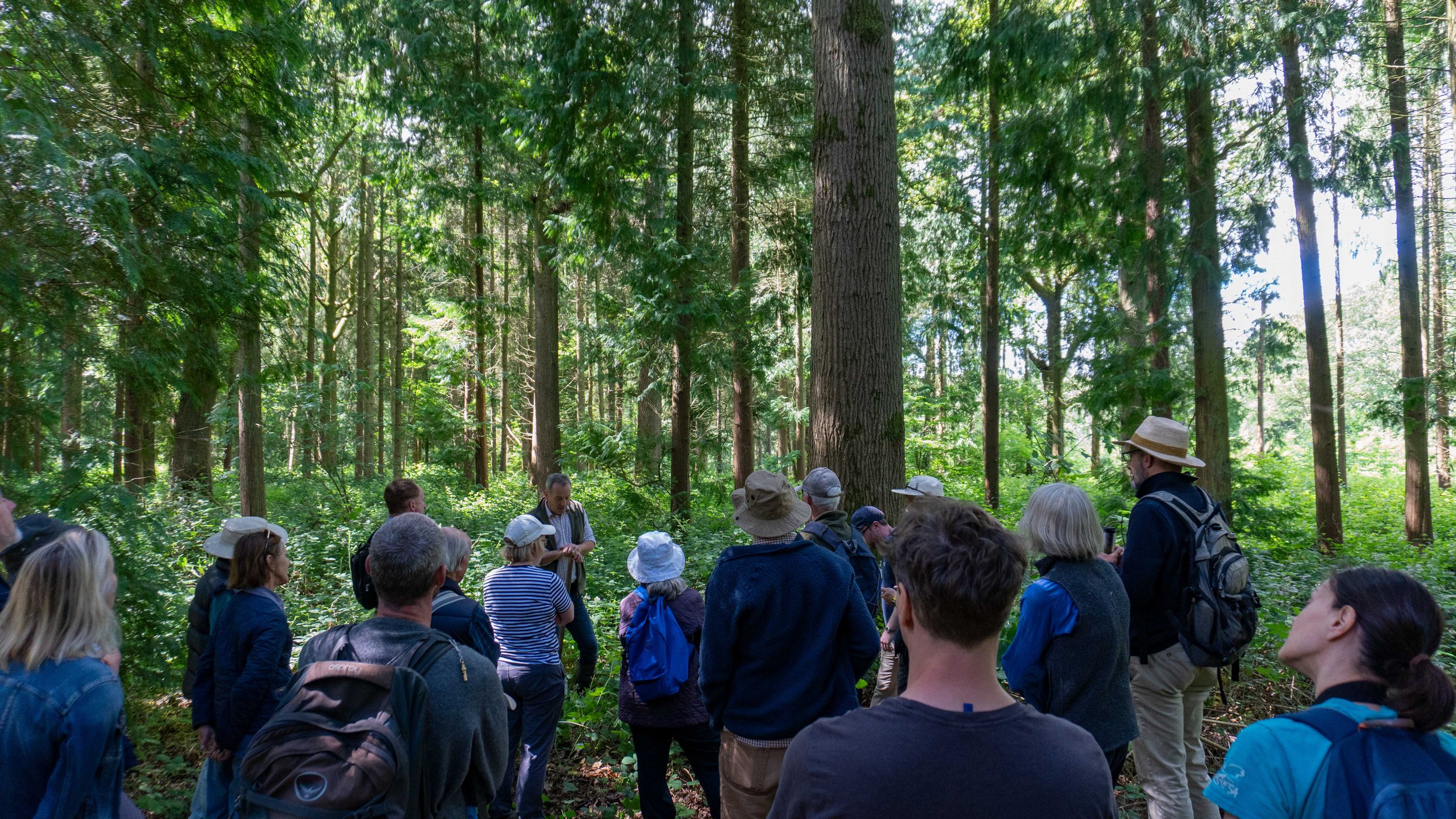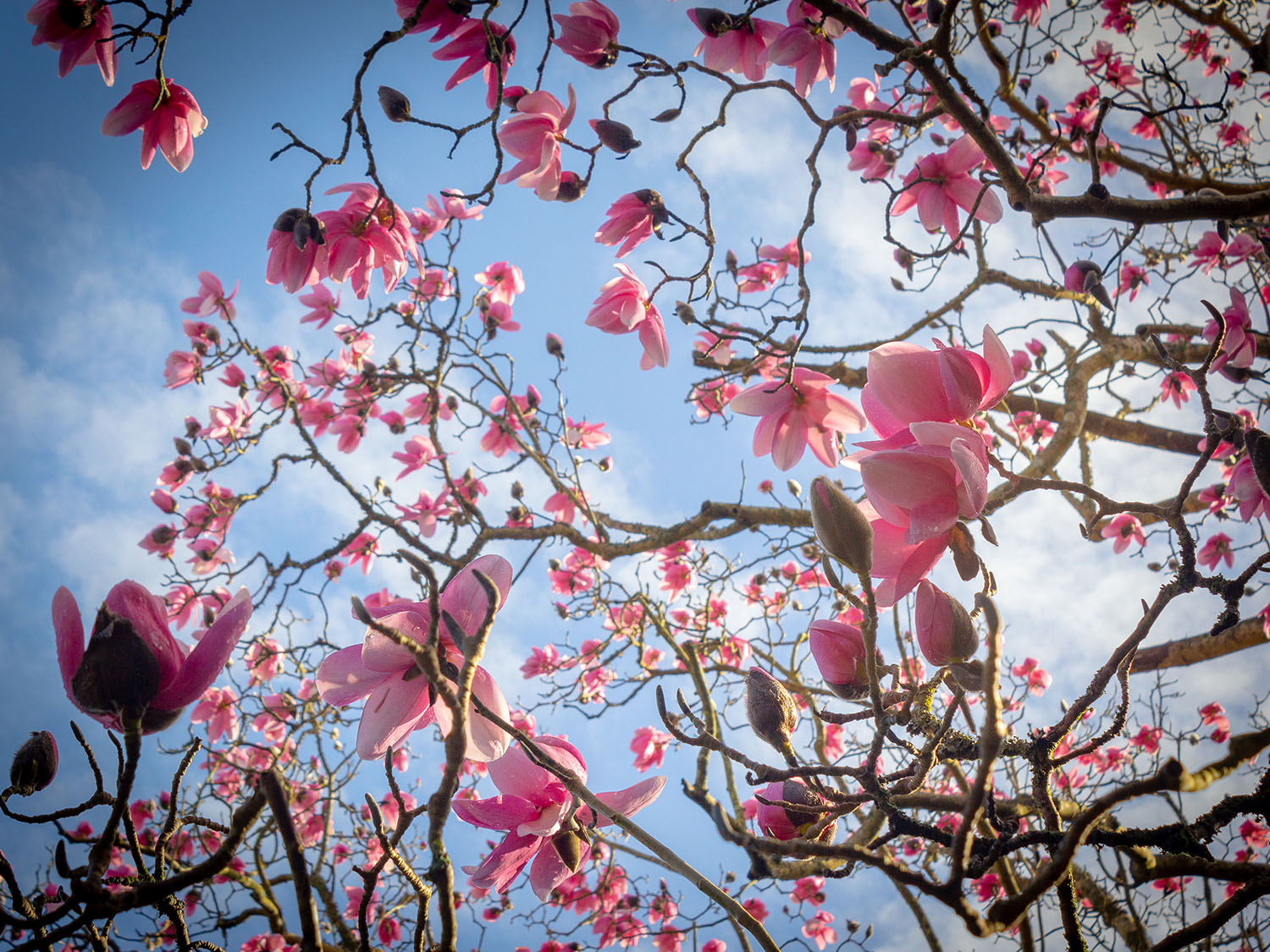
A pair of Blasket cases
When Alice Hayes and Billy O’Connor first advertised for a couple to act as live-in caretakers on a remote island off the Dingle Peninsula, they were utterly buried with applications: more than 80,000 people from across the world got in touch.
Unsurprisingly, they're more careful about wording their adverts these days: by dolloping a big pile of realism in with the romance it's just a few hundred to sift through these days. But such are the problems faced by those who own islands such as Great Blasket, a large chunk of which has been in O'Connor's family since the 1980s when his grandfather and grandfather's brother clubbed together to buy it. You may never have heard of it — we hadn't — but it's the largest of the Blasket Islands, a fabulously remote series of dots on the map that are dramatic, unspoilt, impossibly romantic, and the form the most westerly archipelago in Europe.
The role of the live-in caretakers involves running the tourist facilities over the summer — primarily a café and a few self-catering properties — and the latest pair to get the job are James Hayes, who hails from nearby Tralee, and his wife Camille Rosenfeld, an American from Minnesota.
The new caretakers of the Great Blasket Island will celebrate their first wedding anniversary by candlelight in romantic isolation on the remote island off the Kerry coast.In this week’s Kerry’s Eye - ‘It’s our Love Island’ pic.twitter.com/L2VgxWkzixFebruary 26, 2025
They couple, recently married and both in their 20s, have no illusions about what to expect of their new life. Water has to be drawn from a spring, and the only electricity is supplied by batteries charged via a single small wind turbine. But they're looking forward to it immensely. 'I think we will enjoy watching the sunsets, looking at the stars with no light pollution and winding down with a book in the candlelight,' Rosenfeld told the Guardian. 'We are just really comfortable being uncomfortable.'
Britain's rudest street names... and how much you'll pay to live there
'Wanted to see if you’d be interested in covering the shocking street names and their effect on property value,' read the email that hit my inbox the other day from the PR team at Good Move.
It's not subtle but... well, you'd be hard pressed not to chuckle at least a bit at the roads that the researchers have unearthed across the country — and how they affect prices.
It might not surprise you to find out, for example, that houses on Hooker Road in Norwich cost £70,000 less than the average home in NR7 postcode; or that Fanny Hands Lane in Lincoln is £57,000 cheaper than the rest of LN8.
Exquisite houses, the beauty of Nature, and how to get the most from your life, straight to your inbox.

Yes, this really is a road.
But is it more or less surprising that homes in Willey Lane in Nottingham and, ahem, T**tling Road in Birmingham (apologies for the rather coy asterisks, we don't want to get caught in your work's website filters) cost more than double the average in NG16 and B45 respectively?
Clearly the methodology is deeply flawed here, for comparing any single road to the rest of an entire postcode (especially one as large and populous as N1 or LE1) will throw up all sorts of statistical nonsense.
And yet, it'll give you a chuckle on a Monday morning. You can see the full list here.
Woodland workshops
Despite the rich woodland across the country, the UK is a huge importer of timber goods — second only to China. The charity Woodland Heritage is dedicated to redressing the balance, championing the use of more home-grown timber from sustinable, productive woodlands, and encouraging more of us to use and buy wooden furniture and other goods that have been crafted in Britain.

To help get the message out there, Woodland Heritage are running Open Woods & Workshops, a series of events being held across the country in June 2025. They'll be held everywhere from large forestry estates to smaller woodlands, from sawmills to artists’ studios and from architects to furniture makers. The Duchy of Cornwall, Gaze Burvill and John Makepeace are just three of those organisations taking part.
'It is so important that we increase people’s connection to and appreciation of the UK’s trees and home-grown timber,' says Geraint Richards, Head Forester to the Duchy of Cornwall and to His Majesty The King. You can find out more at woodlandheritage.org and book a slot at one of the Open Woods & Workshops from Tuesday, March 4th.
The first magnolias of spring
With happy regularity, the announcement came last week that spring had indeed sprung. As of February 24, a few days later than last year, there are at least 50 blooms on each of the six champion Magnolia campbellii trees within the Great Gardens of Cornwall: Tregothnan, Caerhays, Trebah, Trewidden, The Lost Gardens of Heligan and Trewithen, from which this year’s announcement was made.
‘Over the past 13 years, we have observed this pattern, with the Magnolia campbellii consistently flowering between Valentine’s Day and the first week in March. I am also told by our reliable sources at Tremap that the Cornish Magnolias are flowering earlier than their cousins in the Himalayas,’ says Toby Ashworth, founder of the initiative Cornwall’s Spring Story and proprietor of The Nare Hotel.

‘We can happily confirm that Cornwall has beaten India to declare spring!’ adds Jonathon Jones managing director of Tregothnan and founder of Tremap.
‘The audit of all campbellii is ongoing and we are surprised (or rather, alarmed) at how scarce they appear to be. Cornwall’s Spring Story is helpful to raise awareness and find magnolia spotters across the northern hemisphere.’ See narehotel.co.uk for more.
Toby Keel is Country Life's Digital Director, and has been running the website and social media channels since 2016. A former sports journalist, he writes about property, cars, lifestyle, travel, nature.

